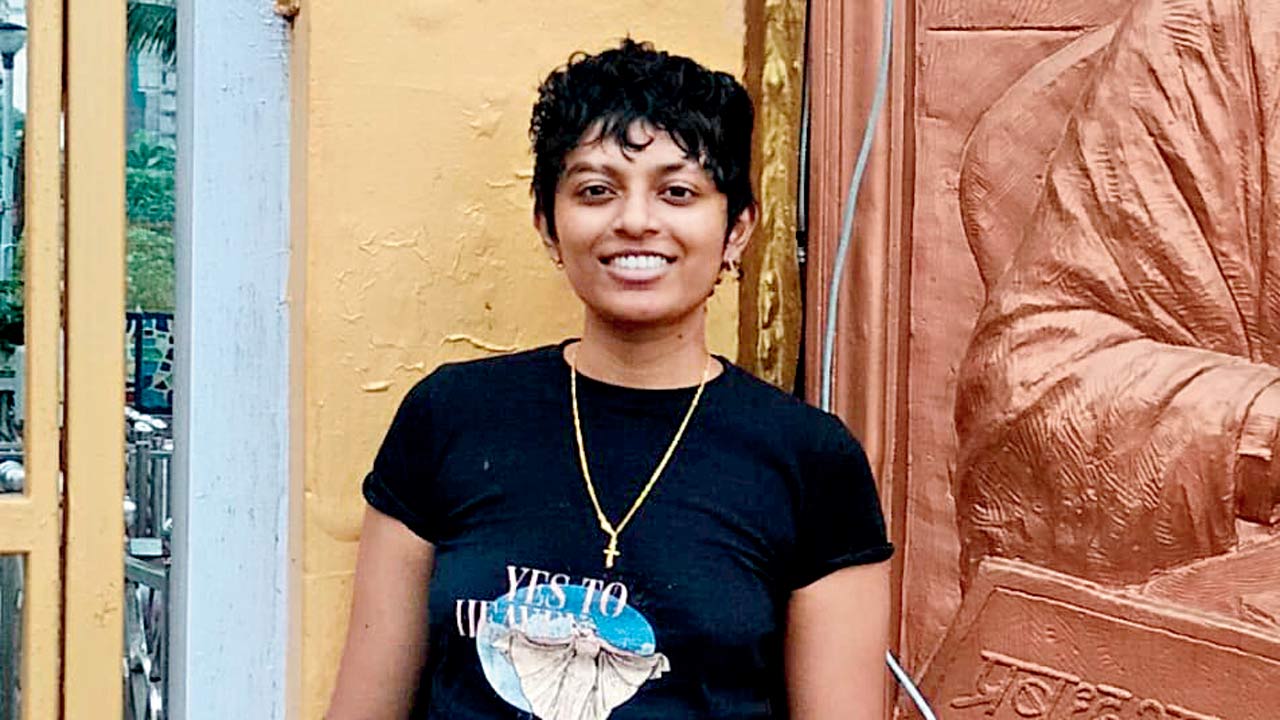From an alternate reality in which words must be bought to be used, to a universe where sentient clouds are exploited, Indian voices are growing louder in the speculative fiction genre

A still from Netflix series Leila, adapted from Prayaag Akbar’s eponymous novel
Indian speculative fiction aka SF or spec-fic is having a moment, with authors imagining strange, new worlds and taking readers where no human has gone before. The genre, which has many fans in the West, has slowly been gathering steam in the last decade in India. And is coloured in with uniquely Indian themes such as over-turning caste structures.
ADVERTISEMENT
While there has been a rich tradition of SF in regional languages like Tamil and Bengali, there is now a new wave of desi spec-fic in English. In recent years, several Indian authors have also found international recognition with nominations for prestigious SF awards, including the Arthur C Clarke award (for science fiction), as well as the Hugo and Nebula awards (for sci-fi and fantasy fiction). Writing SF can also be lucrative—Netflix has adapted Prayaag Akbar’s novel Leila into an eponymous series.
But what is speculative fiction? A wide genre that encompasses science fiction such as Isaac Asimov’s Foundation series, or dystopian tales such as Margaret Atwood’s The Handmaid’s tale, as well as the now hugely popular fantasy category (think The Song of Ice and Fire, and The Witcher). At first glance, these works may not seem to have much in common, but one central question ties them together: What if?
 A still from hit TV series Game of Thrones, which is said to have led to an explosion in the interest for speculative fiction in India
A still from hit TV series Game of Thrones, which is said to have led to an explosion in the interest for speculative fiction in India
This is how all SF writers begin, questioning everything about the way our world functions. And reimagining even one element can build a universe anew.
Take Gigi Ganguly, who thought What if clouds were sentient beings, forced into producing rain at the beck and call of cloud-seeding corporations? This is the premise of the opening story in her short fiction collection, Biopeculiar: Stories of An Uncertain World, which is centred on climate change and our relationship with the environment.
Released in April, Biopeculiar is the very first book to be published under Westland Books’s new imprint dedicated to spec-fic, IF. Although there are quite a few Indian SF authors—Samit Basu, Indra Das and Tashan Mehta being a few—there was no dedicated space for the genre before, says Ganguly.
“It is still quite niche in India,” says the Noida-based author, adding, “My hope is that readers stumble upon an SF book and discover the many worlds within. There has been a greater push for it in India in the last few years, and it helps that Indian writers are also getting nominated for prestigious awards. Worldwide, SF is dominated by Western voices, so there is a fresh perspective we can offer.”
 R T Samuel, co-editor of Blaft’s anthology
R T Samuel, co-editor of Blaft’s anthology
Westland Books has also invited submissions for a new SF anthology. Publisher Karthika VK says the goal is to not only encourage more Indian writers, but also build an imprint that becomes a go-to for readers who enter a bookstore looking for SF. Interest in fantasy and speculative fiction blew up after series like the Game of Thrones [based on George RR Martin’s A Song of Ice and Fire] aired on TV, says Karthika, adding, “People are talking about Shogun [a TV series based on the eponymous 1975 novel by James Clavell]. There’s a lot more excitement around the genre.”
The IF anthology is to be edited by constitutional lawyer and SF writer Gautam Bhatia, who is known for his SF duology comprising The Wall and its sequel, The Horizon. The books are set in a city encircled by a high wall that no one in living memory has crossed. His third book, The Sentence (Westland Books) comes in October. “It combines my work as a lawyer and as a sci-fi writer. It’s set in a city that cryo-freezes convicts for 100 years instead of the death penalty, giving them a chance to be revived if proved innocent. It’s crime and punishment through the lens of sci-fi,” says Bhatia, who also co-edits the SF magazine, Strange Horizons.
Dystopian SF can eerily foreshadow the real world, much like Lavanya Lakshminarayan’s debut novel, Analog/Virtual, which was released just weeks before the COVID-19 outbreak. The book is set in an alternative Bengaluru in which virtual elites live in technology-enabled comfort, while the Analogs live without access to tech, or even electricity and water. This divide was stark during the pandemic when those with technology were able to order conveniences from home, while others lined up for groceries. Lakshminarayan’s book is shortlisted for the prestigious Arthur C Clarke Award. She is one of only two Indian writers to make it to this list, the other being Amitav Ghosh who won it in 1997 for Calcutta Chromosome.
 Blaft Publications’ anti-caste SF anthology features futuristic cover art by Bahujan artist Priyanka Paul
Blaft Publications’ anti-caste SF anthology features futuristic cover art by Bahujan artist Priyanka Paul
Mimi Mondal was the first Indian to be nominated for the 2020 Nebula Award for her novelette His Footsteps, Through Darkness and Light. The award-winning Dalit author’s work will also feature in Blaft Publications’ anti-caste SF anthology, expected to release in December. Creating an anthology of anti-caste spec-fic was an obvious choice for co-editor R Talitha Samuel. Though SF has a long history in India, the perspectives were mostly of savarna authors. Anti-caste fiction tends to be realist and focused on strife.
“I have been reading spec-fic since I was in high school,” he says, “As a political science major, I didn’t understand why we didn’t have more anti-caste SF when India is inherently political. The fact that this has not happened yet is chilling. How else would you think and talk about different possibilities when it comes to caste? Instead, SF in India has mostly been retellings of mythology.”
Editors of the anthology—Samuel, Blaft publisher Rakesh Khanna and Rashmi RD—were sure that writers already had these ideas, but perhaps no one had thought to compile them. “We looked for emerging authors with the potential to reimagine something really cool…like what if someone disenfranchised in this world is in power in an alternate universe?” says Samuel.
 Payal Kapadia, author, Gautam Bhatia and Gigi Ganguly
Payal Kapadia, author, Gautam Bhatia and Gigi Ganguly
The anthology features a mix of established authors in Indian languages such as Dalit icon Bama Faustina Soosairaj (Tamil), Gautamiputra Kamble (Marathi), Gogu Shyamala (Telugu), as well as first-time writers. “We have robots, alternative histories, futurist tales, and horror stories. There’s even a horror story written in the form of Reddit threads. These are wrapped in futuristic cover art by Bahujan artist Priyanka Paul,” says Samuel.
For Crossword Award winning author Payal Kapadia, a former journalist, the freedom to reimagine the world is what she loves most. “I enjoy making stories up,” she says, “but even in spec-fic, there are unbreakable rules. That was a big learning. The world may be impossible, but it must be plausible. Sometimes you get carried away, and want to break the laws you have established for your world, but you’d lose the reader’s trust and the story falls apart.”
In her latest book, Woebegone’s Warehouse of Words, this Nepean Sea Road resident creates a world where you have to buy words to use them. These words are living beings made of flesh and ink. “As I wrote this book, I began to see the parallels with the world we live in. Tyrants have become more sophisticated. If I have to silence you, I don’t have to cut off your tongue, I just have to take away your words. You can rule very effectively by controlling what stories people hear. If a lie is told repeatedly, it starts sounding like the truth.”
 Subscribe today by clicking the link and stay updated with the latest news!" Click here!
Subscribe today by clicking the link and stay updated with the latest news!" Click here!







